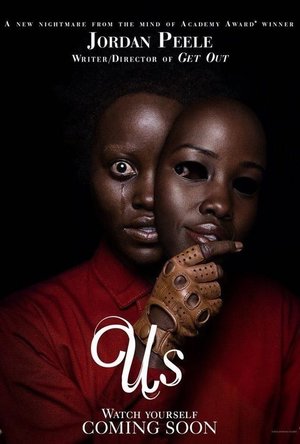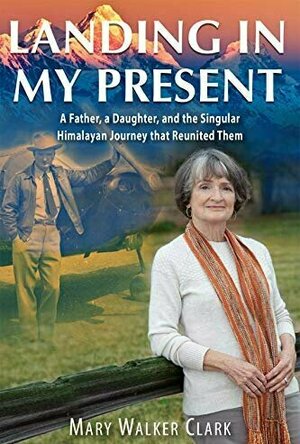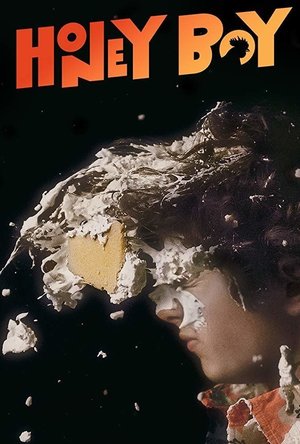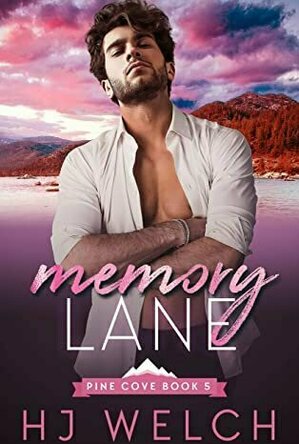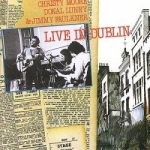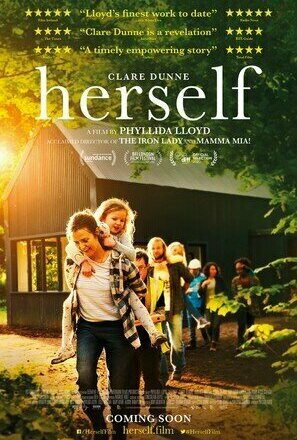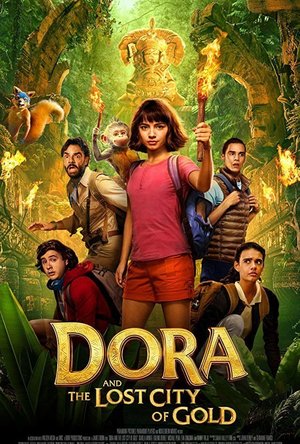Search
Search results

Gladiatori Moderni
Book
Bodies, sweat, the direct gaze; strength, courage, doubt; the visual and emotional alphabet of Piero...
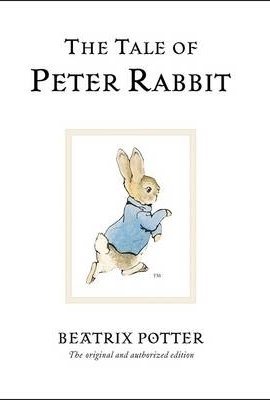
The Tale of Peter Rabbit
Book
The Tale of Peter Rabbit is the original classic by Beatrix Potter. The Tale of Peter Rabbit was...
Charlie Cobra Reviews (1840 KP) rated Us (2019) in Movies
Jul 6, 2020
Damn Good Horror Film - 9/10
Us is a 2019 horror movie written, directed, and co-produced by Jordan Peele. It was also produced by Jason Blum, Ian Cooper, and Sean McKittrick; through Monkeypaw Productions and distributed by Universal. It stars Lupita Nyong'o, Winston Duke, Shahadi Wright Joseph, and Evan Alex.
In 1986, on vacation with her parents in Santa Cruz, one night Adelaide Thomas (Madison Curry) wanders off while at the boardwalk on the beach. Only a young girl at the time she enters a scary looking funhouse where she gets lost in the hall of mirrors. Panicking, afraid and looking for the exit, she encounters a doppelganger of herself, leaving her traumatized and unable to speak when she is reunited with her parents. Now an adult, Adelaide (Lupita Nyong'o) reluctantly heads with her family: husband Gabe Wilson (Winston Duke), daughter Zora Wilson (Shahadi Wright Joseph), and son Jason Wilson (Evan Alex) to their beach house in Santa Cruz. Adelaide is very apprehensive about the trip, remembering the traumatic incident from her youth, and becomes very discontent. Even during the day while meeting up with friends at the beach, she becomes very erratic for a moment when she cannot find her son who walked a way to use the restroom. She becomes increasingly concerned something bad is going to happen. Later that evening, back at the beach house, she confides in her husband the details of her childhood trauma, which he laughs off until four masked people storm the house forcing them to fight for their survival.
I cannot say how much I enjoyed this movie. It was an awesome horror movie. Jordan Peele knocked it out of the park with this film. It was masterfully done. I like how you can see a lot of the influences from other films yet it was still very original. This movie had me at the edge of my seat gripping the armrests of my chair with a lot of its scarier scenes. Yet it was still funny in a lot of parts. I thought the acting was great especially for so many actors playing duo roles, even the children. The cinematography was very good too with a lot of visuals that will stay with you and hidden meanings to things you will probably only notice or realize on your 2nd or 3rd viewing. I personally can't wait to watch it again. Another critic summed it up better than I ever could "originality in concept, physiological torment+twists, old-world suspense building, and one of the best scorings in modern Horror history"-(Cinema Lovers Club Gmail). I really loved the soundtrack and music in this movie. I give it a 9/10.
In 1986, on vacation with her parents in Santa Cruz, one night Adelaide Thomas (Madison Curry) wanders off while at the boardwalk on the beach. Only a young girl at the time she enters a scary looking funhouse where she gets lost in the hall of mirrors. Panicking, afraid and looking for the exit, she encounters a doppelganger of herself, leaving her traumatized and unable to speak when she is reunited with her parents. Now an adult, Adelaide (Lupita Nyong'o) reluctantly heads with her family: husband Gabe Wilson (Winston Duke), daughter Zora Wilson (Shahadi Wright Joseph), and son Jason Wilson (Evan Alex) to their beach house in Santa Cruz. Adelaide is very apprehensive about the trip, remembering the traumatic incident from her youth, and becomes very discontent. Even during the day while meeting up with friends at the beach, she becomes very erratic for a moment when she cannot find her son who walked a way to use the restroom. She becomes increasingly concerned something bad is going to happen. Later that evening, back at the beach house, she confides in her husband the details of her childhood trauma, which he laughs off until four masked people storm the house forcing them to fight for their survival.
I cannot say how much I enjoyed this movie. It was an awesome horror movie. Jordan Peele knocked it out of the park with this film. It was masterfully done. I like how you can see a lot of the influences from other films yet it was still very original. This movie had me at the edge of my seat gripping the armrests of my chair with a lot of its scarier scenes. Yet it was still funny in a lot of parts. I thought the acting was great especially for so many actors playing duo roles, even the children. The cinematography was very good too with a lot of visuals that will stay with you and hidden meanings to things you will probably only notice or realize on your 2nd or 3rd viewing. I personally can't wait to watch it again. Another critic summed it up better than I ever could "originality in concept, physiological torment+twists, old-world suspense building, and one of the best scorings in modern Horror history"-(Cinema Lovers Club Gmail). I really loved the soundtrack and music in this movie. I give it a 9/10.
https://travelingwife4life.wordpress.com/2020/07/23/landing-in-my-present-lone-star-lit/
Landing in My Present by Mary Walker Clark got me hook, line, and sinker; and for someone who does not generally read biographies that is saying something. From the opening chapter, Mary Walker Clark drew me into her story and her journey to know her father better. I enjoyed the way she shared her journey; it was like a reading story full of learning, history, emotions, and some great life lessons. From finding old letters, listening to people who had known her dad, and traveling to where he had lived, Mary brought him to life before my eyes. I cannot even imagine how awesome and meaningful her adventure was for her and her family on a personal level.
“How do you broaden your relationship with someone who has been dead 50 years?”
This question stood out to me and was part of the challenge of Mary Walker Clark’s story. Can you truly know someone who died 50 years ago? Well, I think Mary Walker Clark got pretty darn close. From the start, Mary Walker Clark weaved in her childhood memories, historical details about the different planes her dad flew, personal letters from friends of her father… It made me feel like I was on the journey with her. Gleaning a little bit more knowledge of who her dad was. It was also interesting to see how her perspective of her father grew and changed over the course of the book; it was like watching something unfold before my eyes.
I think many people can relate to Mary Walker Clark’s family, from their early compartmentalization of feelings, their hard work ethics, and how they learned that life can pass much to quickly, leaving never enough time to feel like we truly know our family. They are so similar to the dynamics in my family and many others that I know of.
The research, emotions, and time that went into this book are amazing. I rarely find a book that makes me want to cry but Mary Walker Clark wrote with such forthrightness about her experiences that it caused me to think about how much history we are losing every day because we do not take the time to sit and listen to the people around us. I am so glad I read this book, and I definitely recommend it to anyone who likes WWII history. I learned so much about WWII that I did not know beforehand, and I learned the importance of writing down or passing down the history of your family.
I give it 5 out of 5 stars for the detailed WWII history, the way Mary Walker Clark drew a picture of her dad, and for the amazing journey that Mary Walker Clark took me on which involved me in every aspect of her journey.
*I volunteered to read this book in return for my honest feedback. The thoughts and opinions expressed in this review are my own.
Landing in My Present by Mary Walker Clark got me hook, line, and sinker; and for someone who does not generally read biographies that is saying something. From the opening chapter, Mary Walker Clark drew me into her story and her journey to know her father better. I enjoyed the way she shared her journey; it was like a reading story full of learning, history, emotions, and some great life lessons. From finding old letters, listening to people who had known her dad, and traveling to where he had lived, Mary brought him to life before my eyes. I cannot even imagine how awesome and meaningful her adventure was for her and her family on a personal level.
“How do you broaden your relationship with someone who has been dead 50 years?”
This question stood out to me and was part of the challenge of Mary Walker Clark’s story. Can you truly know someone who died 50 years ago? Well, I think Mary Walker Clark got pretty darn close. From the start, Mary Walker Clark weaved in her childhood memories, historical details about the different planes her dad flew, personal letters from friends of her father… It made me feel like I was on the journey with her. Gleaning a little bit more knowledge of who her dad was. It was also interesting to see how her perspective of her father grew and changed over the course of the book; it was like watching something unfold before my eyes.
I think many people can relate to Mary Walker Clark’s family, from their early compartmentalization of feelings, their hard work ethics, and how they learned that life can pass much to quickly, leaving never enough time to feel like we truly know our family. They are so similar to the dynamics in my family and many others that I know of.
The research, emotions, and time that went into this book are amazing. I rarely find a book that makes me want to cry but Mary Walker Clark wrote with such forthrightness about her experiences that it caused me to think about how much history we are losing every day because we do not take the time to sit and listen to the people around us. I am so glad I read this book, and I definitely recommend it to anyone who likes WWII history. I learned so much about WWII that I did not know beforehand, and I learned the importance of writing down or passing down the history of your family.
I give it 5 out of 5 stars for the detailed WWII history, the way Mary Walker Clark drew a picture of her dad, and for the amazing journey that Mary Walker Clark took me on which involved me in every aspect of her journey.
*I volunteered to read this book in return for my honest feedback. The thoughts and opinions expressed in this review are my own.
Reed Morano recommended Honey Boy (2019) in Movies (curated)
Debbiereadsbook (1611 KP) rated Memory Lane (Pine Cove #5) in Books
Mar 13, 2021
I loved that everyone plays a part here!
I was gifted my copy of this book.
This is book 5 in the Pine Cove series, and while not necessary to have read the other 4, I would personally recommedn that you do. It will give you a better feel for Pine Cove, and more importantly, for the people who live in it, and just why what happens here is NOT the norm for this town.
Jay is Robin's brother. Angel is his best friend from childhood and Jay has loved Angel since that day on the bridge, 16 years ago. Now having Angel so close, Jay is struggling to keep his feelings hidden. Then when Angel has an accident at work, and loses some memory, Jay steps up to look after Angel and puts himself in a world more hurt. Angel, on the other hand, remembers Jay. Jay is the first thing he says when he wakes up, and he remembers all the places that he and Jay went to as kids. ALL his memories revolve around Jay. Everything he feels, revolves around Jay. Is he attracted to Jay?
I enjoyed this, I really did but it doesn't pack the punch that the first three books carry.
Oh don't get me wrong, it's a wonderfully written, well told book, but it doesn't sucker punch you quite so much and I kinda missed that.
The love Jay has for Angel is palable, right from the start, and that carries right through the book, even if it thought it might cost him their friendship. Angel's feeling for Jay are a little less. . . . romantic but nonetheless intense. It just takes Angel time to filter all the noise in his head from his ex, to see what he really feels for Jay; how MUCH he feels for Jay.
I loved the fact that it's on the bridge, when Jay fell in love with Angel, that Angel lets his feelings really come out!
I could see what had happened to cause the accident coming at me, just as soon as the instigator makes themselves known causing trouble. I didn't think they quite go as far as they do though!
I loved that everyone plays a part here. Robin and Dair; Scout and Emery, Swift and Micha, and Ben and Elias: they all take part to some degree or other. Kamran too, and something happens here that makes me wonder what is going on with him!
And halle-flipping-lujah! Ava and Peyton finally FINALLY admit, out loud, in front of everyone, what they mean to each other and I still want them to have a story!
So from this book, I want two more: Kamran's story and Ava/Peyton's! Greedy? Moi?? I don't know what you mean!
A great read, though, all in all!
4 solid stars
**same worded review will appear elewhere**
This is book 5 in the Pine Cove series, and while not necessary to have read the other 4, I would personally recommedn that you do. It will give you a better feel for Pine Cove, and more importantly, for the people who live in it, and just why what happens here is NOT the norm for this town.
Jay is Robin's brother. Angel is his best friend from childhood and Jay has loved Angel since that day on the bridge, 16 years ago. Now having Angel so close, Jay is struggling to keep his feelings hidden. Then when Angel has an accident at work, and loses some memory, Jay steps up to look after Angel and puts himself in a world more hurt. Angel, on the other hand, remembers Jay. Jay is the first thing he says when he wakes up, and he remembers all the places that he and Jay went to as kids. ALL his memories revolve around Jay. Everything he feels, revolves around Jay. Is he attracted to Jay?
I enjoyed this, I really did but it doesn't pack the punch that the first three books carry.
Oh don't get me wrong, it's a wonderfully written, well told book, but it doesn't sucker punch you quite so much and I kinda missed that.
The love Jay has for Angel is palable, right from the start, and that carries right through the book, even if it thought it might cost him their friendship. Angel's feeling for Jay are a little less. . . . romantic but nonetheless intense. It just takes Angel time to filter all the noise in his head from his ex, to see what he really feels for Jay; how MUCH he feels for Jay.
I loved the fact that it's on the bridge, when Jay fell in love with Angel, that Angel lets his feelings really come out!
I could see what had happened to cause the accident coming at me, just as soon as the instigator makes themselves known causing trouble. I didn't think they quite go as far as they do though!
I loved that everyone plays a part here. Robin and Dair; Scout and Emery, Swift and Micha, and Ben and Elias: they all take part to some degree or other. Kamran too, and something happens here that makes me wonder what is going on with him!
And halle-flipping-lujah! Ava and Peyton finally FINALLY admit, out loud, in front of everyone, what they mean to each other and I still want them to have a story!
So from this book, I want two more: Kamran's story and Ava/Peyton's! Greedy? Moi?? I don't know what you mean!
A great read, though, all in all!
4 solid stars
**same worded review will appear elewhere**
Kate Nash recommended track Black Is the Colour of My True Love's Hair by Christy Moore in Live in Dublin by Christy Moore in Music (curated)
Emma @ The Movies (1786 KP) rated Herself (2020) in Movies
Oct 6, 2020
I was keen to see this from recommendations I'd spotted online, but I wasn't overly enthused by the description... boy am I glad that the internet has great taste in movies.
Sandra is trying to keep her life together for her two daughters after she escapes from her abusive husband. Feeling isolated, overworked and living in a terrible situation Sandra has an off the wall idea that seems like a pipe dream. With the help of those around her she makes a true home for her girls and regains pieces of herself she'd lost.
Herself has some very serious topics in it, domestic violence and childhood trauma being at the top of the list, so that's definitely something to keep in mind if you're thinking of watching it. These topics are very effectively done and those feelings jumped out and affected me in a way I really didn't expect... I cried through a significant amount of the film, so probably just as well I was sitting in my living room and not a crowded cinema.
An interesting discovery on this was that one of the writers was Clare Dunne who plays the lead role of Sandra. I don't know what the process was between her and Malcolm Campbell but that involvement undoubtedly helps Dunne relay the true intent of the script, which I felt was incredibly well written.
Dunne's performance blew me away, barely minutes into the film you realise just what you're in for, it was such a brutal switch that my jaw nearly hit the floor. At every tense moment Dunne's acting is flawless and she conveys the emotions to a T. She does it so well that you get caught up in her anxiety, I found myself waiting for the bad things she was living in fear of and it was agonising... in a good way.
Along with her performance they use footage so well to help convey the story. When Sandra has an anxiety attack they cut clips into the scene, the quick changing back and forth between memory and present day brings the unsettling familiarity of panic and brings about a deeply emotional moment in the film. It might not conjure the exact same feeling as your own personal anxiety attack but it was closer than any other films I've seen it in.
Herself is a strong reminder that the vulnerable have the power within them to overcome anything through the right support and people who care. And sadly, it also reminds us that the system is a little messed up. I'm so pleased that I got the opportunity to see this, it's a well crafted film and I can say without a doubt it's already one of the highlights of this year's LFF.
Originally posted on: https://emmaatthemovies.blogspot.com/2020/10/herself-movie-review.html
Sandra is trying to keep her life together for her two daughters after she escapes from her abusive husband. Feeling isolated, overworked and living in a terrible situation Sandra has an off the wall idea that seems like a pipe dream. With the help of those around her she makes a true home for her girls and regains pieces of herself she'd lost.
Herself has some very serious topics in it, domestic violence and childhood trauma being at the top of the list, so that's definitely something to keep in mind if you're thinking of watching it. These topics are very effectively done and those feelings jumped out and affected me in a way I really didn't expect... I cried through a significant amount of the film, so probably just as well I was sitting in my living room and not a crowded cinema.
An interesting discovery on this was that one of the writers was Clare Dunne who plays the lead role of Sandra. I don't know what the process was between her and Malcolm Campbell but that involvement undoubtedly helps Dunne relay the true intent of the script, which I felt was incredibly well written.
Dunne's performance blew me away, barely minutes into the film you realise just what you're in for, it was such a brutal switch that my jaw nearly hit the floor. At every tense moment Dunne's acting is flawless and she conveys the emotions to a T. She does it so well that you get caught up in her anxiety, I found myself waiting for the bad things she was living in fear of and it was agonising... in a good way.
Along with her performance they use footage so well to help convey the story. When Sandra has an anxiety attack they cut clips into the scene, the quick changing back and forth between memory and present day brings the unsettling familiarity of panic and brings about a deeply emotional moment in the film. It might not conjure the exact same feeling as your own personal anxiety attack but it was closer than any other films I've seen it in.
Herself is a strong reminder that the vulnerable have the power within them to overcome anything through the right support and people who care. And sadly, it also reminds us that the system is a little messed up. I'm so pleased that I got the opportunity to see this, it's a well crafted film and I can say without a doubt it's already one of the highlights of this year's LFF.
Originally posted on: https://emmaatthemovies.blogspot.com/2020/10/herself-movie-review.html
Lee (2222 KP) rated Dora and the Lost City of Gold (2019) in Movies
Aug 28, 2019 (Updated Aug 28, 2019)
Well, that was a fun surprise!
While my youngest daughter was growing up, I watched a lot of Dora the Explorer on TV. She absolutely loved the show and its characters, its catchphrases and the music all ended up becoming a permanent fixture in my brain for a few years. When news broke of a live action movie, Dora and The Lost City of Gold, accompanied by a trailer and poster, I wasn't really sure what to make of it all. My daughter on the other hand, now aged 14, basically couldn't care less. But, when a succession of fairly positive reviews started coming through, including comparisons to Spy Kids and the classic Indiana Jones movies, I managed to convince her to come with me. And it's pretty fair to say, we both had a great time!
Kicking off with a seriously fun nostalgia trip for anyone who has seen more than their fair share of Dora episodes, the movie pretty much recreates the opening credits from the TV show. The song! Dora's talking backpack and map! And cousin Diego is there too!! But, it turns out Dora and Diego aren't actually just a couple of kids driving recklessly around the jungle in a jeep - they are in fact just using their imagination, driving a homemade cardboard vehicle at the jungle home where Dora lives with her parents.
10 years later and Dora hasn't really changed that much, enthusiastically exploring the jungle and communicating with all of the animals. When her parents (played by Michael Peña and Eva Longoria) decide to venture off in search of a lost city of gold, they pack Dora off to the big city where she joins Diego at high school. But Dora and her over friendly, extrovert ways prove to be a big embarrassment for cousin Diego, who has grown up to be a fairly normal, moody teenager, leaving behind his imaginative jungle childhood.
When her parents suddenly go missing one day, Dora enlists the help of Diego and a couple of unwitting fellow students to venture with her into the jungle in order to try and find them and the lost city of gold. What follows is an extremely enjoyable jungle adventure, complete with mysteries, puzzles to solve, and even bad guys too. Isabela Moner, who featured earlier this year as a troubled teenager in the brilliant Instant Family, is perfect as Dora as she brings the older version of the character to life. Her teen co stars all bring something different to the story too, and prove to be a real fun, mixed cast.
Throw in a poo song, an animated Dora scene brought on by breathing in hallucinogenic pollen and a catchy final song and dance number and Dora and the Lost City of Gold is the summer family movie you never knew you needed in your life!
Kicking off with a seriously fun nostalgia trip for anyone who has seen more than their fair share of Dora episodes, the movie pretty much recreates the opening credits from the TV show. The song! Dora's talking backpack and map! And cousin Diego is there too!! But, it turns out Dora and Diego aren't actually just a couple of kids driving recklessly around the jungle in a jeep - they are in fact just using their imagination, driving a homemade cardboard vehicle at the jungle home where Dora lives with her parents.
10 years later and Dora hasn't really changed that much, enthusiastically exploring the jungle and communicating with all of the animals. When her parents (played by Michael Peña and Eva Longoria) decide to venture off in search of a lost city of gold, they pack Dora off to the big city where she joins Diego at high school. But Dora and her over friendly, extrovert ways prove to be a big embarrassment for cousin Diego, who has grown up to be a fairly normal, moody teenager, leaving behind his imaginative jungle childhood.
When her parents suddenly go missing one day, Dora enlists the help of Diego and a couple of unwitting fellow students to venture with her into the jungle in order to try and find them and the lost city of gold. What follows is an extremely enjoyable jungle adventure, complete with mysteries, puzzles to solve, and even bad guys too. Isabela Moner, who featured earlier this year as a troubled teenager in the brilliant Instant Family, is perfect as Dora as she brings the older version of the character to life. Her teen co stars all bring something different to the story too, and prove to be a real fun, mixed cast.
Throw in a poo song, an animated Dora scene brought on by breathing in hallucinogenic pollen and a catchy final song and dance number and Dora and the Lost City of Gold is the summer family movie you never knew you needed in your life!
